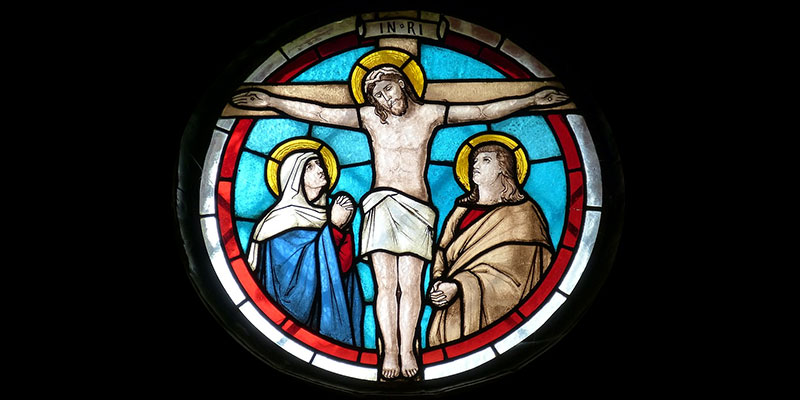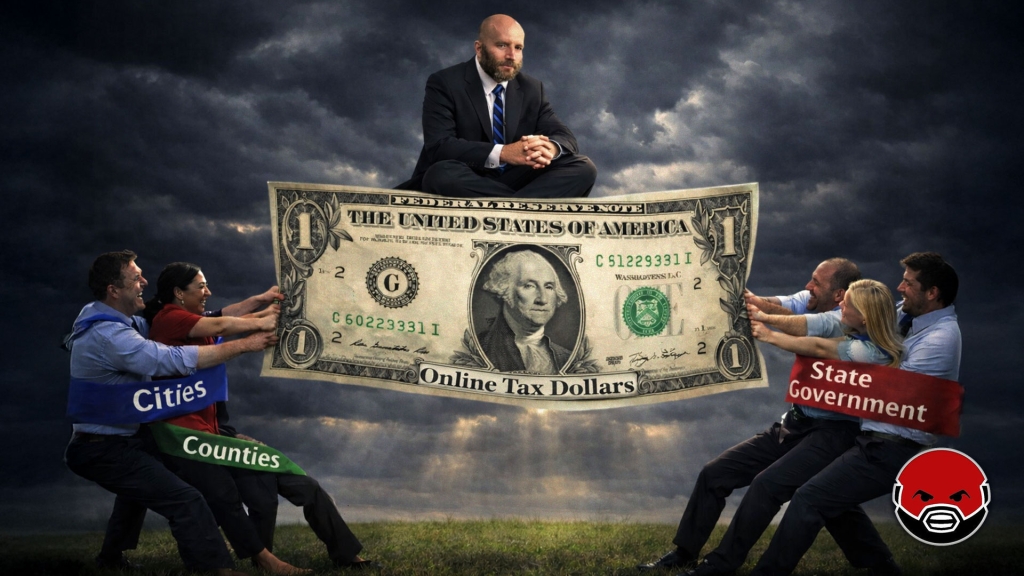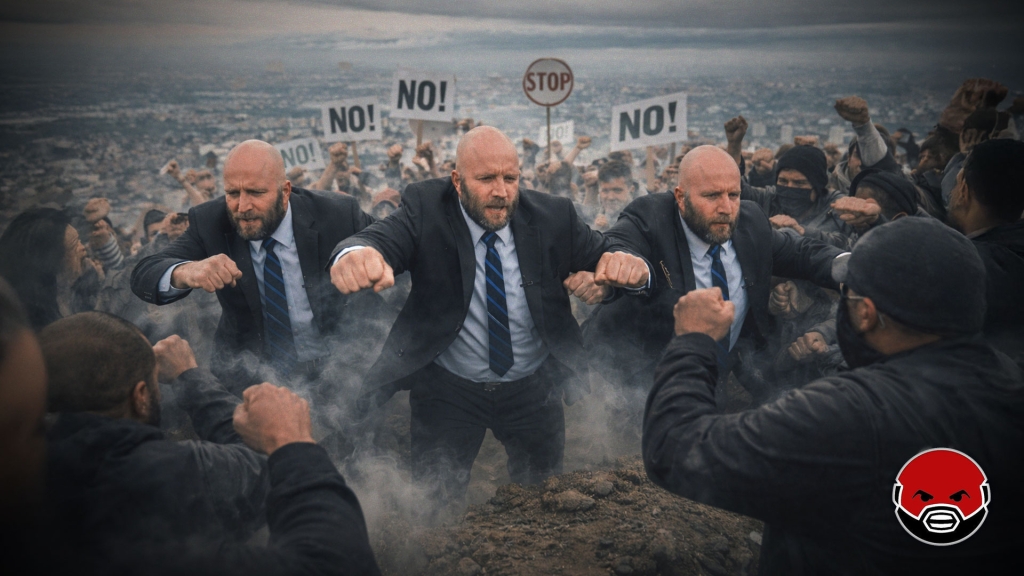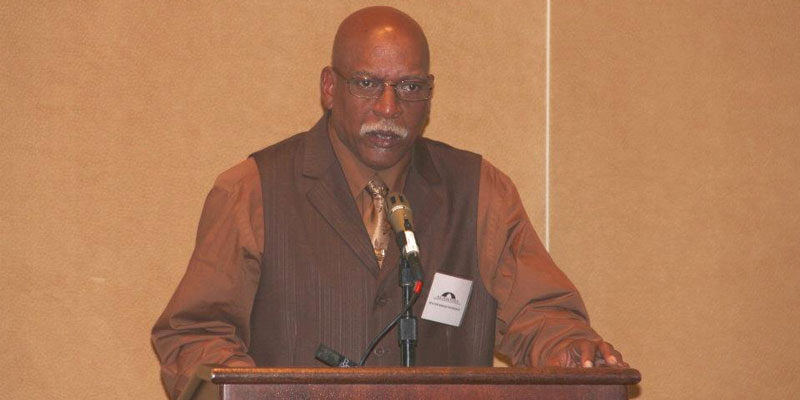Listen to the 10 min audio
Read the transcript:
TOM LAMPRECHT: Harry, today, I want to trade the headline news for the Good News. Today is Maundy Thursday and tomorrow we celebrate Good Friday. Harry, I can remember as a child going to Good Friday services around the Easter celebration and I always thought to myself, “Why in the world do they call it Good Friday?” I can remember watching the movie, “The Robe,” with Victor Mature many decades ago and thinking, “What a terrible tragedy this is. Why would they call it Good Friday?”
DR. REEDER: Maybe I can put it this way: The death of Christ is tragic, but not a tragedy. It is tragic in the sense of all of the issues of one completely innocent being put to death in an unjust verdict and yet it is not a tragedy because the sovereign Godhead ordained all of this to provide an atoning death on behalf of sinners whereby we can be saved.
Tom, let’s back up. I love the way you started this program. Let’s change the headline news for Good News and headline news, many times, is very little good about it but this is good news and it is glorious news.
There are two weeks revealed to us in the Word of God that are of significant, premier and paramount importance. One is the week in which God the Creator has revealed His glorious work to create the heavens and the earth and humanity, male and female in His image. And then you also find, in that week, the fall of humanity into sin.
And then, gloriously, the God of creation is a God of redemption and He has provided a way of salvation. And the focal point of that redeeming work is what His Son, come in the flesh, has done for His people on what we call “The Week of Passion.”
GOSPEL OF JOHN EXPLAINS HOW CHRIST’S LIFE LED TO CRUCIFIXION
I love to study the Gospel of John because it focuses on the life of Jesus in a very significant way and John gives you a lot of background information that the other gospels do not give you. John focuses on the glorious ministry of Christ in his 33-year incarnate life here on the earth and then, the last three years of that life, John brings significant focus. Beginning in John 1 through John 3, he looks at the first week of Jesus’ public ministry that begins with His baptism and then he gives a series of evangelistic encounters in Chapters 3 all the way to Chapter 11.
And then, from Chapter 11 all the way through to Chapter 21, he focuses on the last week of the events and the life of Jesus where Jesus relentlessly moves to that cross to provide an atoning death and gloriously comes from the tomb, announcing the victory that He has secured over sin, and over death, and over Hell, and over Satan and over the grave.
Now, why do we call it Good Friday? Because, on that day, sinners who are helpless and hopeless in what seems to be a tragic event — in that moment of that atoning death of Christ — God has done something that we could not do. He gave us a life in His Son, Jesus, that we had to live but could not live, a life of perfect righteousness that clothes us with the righteousness to take us to Heaven.
WHAT EXACTLY DID CHRIST DO ON THE CROSS FOR US?
And, at the cross, Jesus, stripped of His righteousness, then has the sins of all of His people for all of eternity poured out upon Him and then the wrath of God relentlessly is poured out upon Him as He drinks the cup of our judgement to the last drop, declaring, “Eloi, Eloi, lama sabachthani?”– ”My God, My God, why hast thou forsaken me?” And there, all of the hell due to all of His people for all of eternity, in that cry of dereliction, we see Him descending into hell and hell descending upon Him in the cross.
Then comes that next glorious word, “Tetelestai,” — “It is finished.” And that’s why it’s good. It is tragic, but not a tragedy, for in that moment, Jesus is not dying a martyr’s death and Jesus is not simply dying a model death, but Jesus is dying an atoning death. There is the crux or the cross or the crucial — all of those words come from the Latin word “cross” because there is the moment of history.
Here is the greatest week in all of history and here is the greatest day in all of history. And here, as Jesus said, Himself, is the greatest hour: “My hour has come.” “I was born for this: to go to the cross.” And, at the right time, Christ died for the ungodly. For God demonstrates His own love toward us in that, while we were yet sinners, Christ died for us.
Well, then He goes to the tomb and He is buried in the tomb and the glorious truth of His resurrection on the Lord’s Day. In fulfillment of Scripture, on the third day, He rises from the dead and, in that, God has announced the victory of the saving work of Christ.
WHY DID CHRIST CHOOSE TO TAKE OUR SUFFERING INSTEAD OF US DOING IT OURSELVES?
If you can think of it this way, God has announced the victory of the saving work of Christ. If you can think of it this way, many people can go and claim that they’re dying a sacrificial death, but it does not provide an atonement. Why? Because they need their own savior. Jesus did not need a savior — He was perfectly innocent.
However, Jesus not only died for us perfectly innocent, He died in our place specifically so that our sins would be paid for and God’s announcement to us that, not only was Christ innocent and could take our sins, He made Him who knew no sin to be sin on our behalf so that we might become the righteousness of God in Him. His righteousness and glorious righteousness stripped from Him, our sins put on Him and now, having paid for our sins, His righteousness descends upon us so that the gates of Hell have been shut with His atoning death and the gates of Heaven are open because we have the righteousness of Christ to bring us to glory.
And God’s announcement of that is the resurrection: because He lives, I know His atoning death paid for my sins. As the Scripture says, “He has seen the travail of His soul and is satisfied.” Why did he see it? He’s raised. And why was he raised? Because of the satisfactory atonement of Christ for our sins.
JESUS’ RESURRECTION WAS JUST THE BEGINNING OF GRACE AND EVANGELISM
I love the way it states it in the Gospel of John as the disciples come wondering who’s going to take the stone away — it was the women who were the last at the cross and the women who were the first at the tomb — and they get there and He is not there. “Why do you seek the living among the dead?” We find Mary Magdalen coming and sitting there weeping and the voice of Jesus, when He calls her name, “Mary.” And she says, “Rabboni,” the term of endearment that she would have called Him as her redeemer and teacher.
We find John giving us the information she thought he was a gardener — well, that’s interesting, isn’t it, Tom? The first Adam was what? A gardener. What was the second Adam? Supposed to be a gardener, but He’s not a gardener — He is the Gardener. The first gardener was supposed to have developed the garden and fill the earth. The second Gardener has got another Garden and He’s going to fill the earth as the Kingdom of God.
And then we find the first evangelist as Mary Magdalen goes back to tell the disciples, “I have seen the Savior and He is risen.” And then is released the glorious movement of the power of the Gospel throughout the whole world.
THE GOOD NEWS STRETCHES FROM OUR LIFETIME INTO ETERNITY
Tom, isn’t it glorious, as you began this program, we are taking a break from the headline news to the Good News? Well, actually, it’s the Good News that alone will change the headline news. And the biggest headline news I would love for all of our listeners to know: you have been saved and you can only be saved through Jesus. And you can only be saved through Jesus when you come to Him by faith and repentance — there is no other way. The answer to your life is not found in the news of the world, but the answer to your life and my life is the news that has come from Heaven that Jesus saves.
Hallelujah. What a friend for sinners. Now that gives us a world and life view whereby we understand the news of the day but, more importantly, it gives us the instrument that changes the news of every day — first, by changing you and me.
Come to Christ. Good news: what seems to be a tragic death is no tragedy. It is the work of redemption to save sinners from their sins. It is the victory of God’s grace over our sin and, where our sin abounds, the Good News is God’s grace more than abounds in Jesus Christ. Amazing grace. Come to Jesus and be saved by grace through faith alone and Christ alone and then enjoy that Savior for now and for all eternity.
Dr. Harry L. Reeder III is the Senior Pastor of Briarwood Presbyterian Church in Birmingham.
This podcast was transcribed by Jessica Havin, editorial assistant for Yellowhammer News, who transcribed some of the top podcasts in the country and her work has been featured in a New York Times Bestseller.
Podcast: Play in new window | Download
Subscribe: RSS













